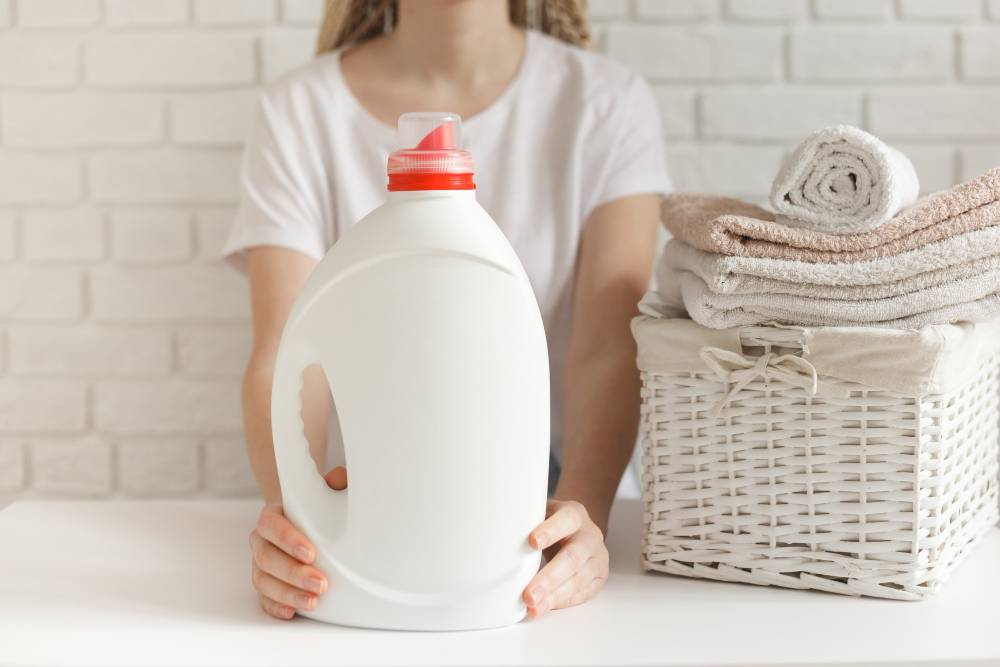WE NOT ONLY PUMP YOUR TANK - WE CLEAN IT! Free Septic System Inspection ($99 Value) Free enzyme treatment , Financing Available
Call Septic Blue Now 813-355-9188
It's Easier Schedule Online
WE NOT ONLY PUMP YOUR TANK - WE CLEAN IT! Free Septic System Inspection ($99 Value) Free enzyme treatment , Financing Available
Call Septic Blue Now 813-355-9188
It's Easier Schedule Online

Fabric softener is a frequently encountered domestic item that is employed to enhance the softness and fragrance of clothing. However, its effects on septic systems have raised concerns among homeowners. Understanding how fabric softeners interact with septic systems is crucial for maintaining a healthy and functional system.
In this blog post, our professionals from Septic Blue will explain how fabric softener impacts your septic system.
Fabric softeners are composed of various chemicals, including quaternary ammonium compounds (quats), which are designed to coat fabrics with a thin layer of residue. While this residue makes clothes feel soft, it can also accumulate in your septic system. Clogs and decreased efficiency in the system may result from the formation of a layer of sediment on the surface of the septic tank over time. This buildup can prevent the proper breakdown of waste, increasing the likelihood of requiring septic tank pumping more frequently.
Fabric softeners can contribute to septic system clogs by accumulating fats, oils, and grease in the pipelines. These substances have the potential to solidify and adhere to the walls of the septic tank, resulting in blockages that obstruct the passage of wastewater. If left unattended, these obstructions can result in plumbing system backups, which may require the assistance of a company for septic tank repair or installation, depending on the extent of the damage.
Septic systems rely on beneficial bacteria to break down and decompose organic matter in the waste. Fabric softeners, with their antimicrobial properties, can harm these bacteria, disrupting the natural balance within the septic tank. When the bacteria population is reduced, the waste decomposition process slows down, leading to a buildup of solids in the tank. This may result in a reduction in the system's overall lifespan and a higher need for routine septic tank cleaning.
Consider employing alternative methods to soften your laundry in order to safeguard your septic system. One popular option is white vinegar, which can be added during the rinse cycle to soften clothes naturally without harming your septic system. Vinegar is biodegradable and does not pose a threat to the beneficial microorganisms in the tank. Additionally, wool dryer balls are an eco-friendly option that can reduce static and soften fabrics without the need for liquid fabric softeners.
If your home relies on a septic system, keeping it…
Read More+A well-maintained septic system is key to keeping your home…
Read More+If you’ve been using fabric softener regularly, it’s essential to take proactive steps to maintain your septic system. Regular septic pumping is necessary to remove any accumulated scum and solids that may have built up over time. Working with a reputable septic company can assist you in scheduling timely maintenance and resolving any issues before they escalate into more severe problems. Furthermore, if the efficiency of your system has been compromised by the use of fabric softeners, it may be necessary to repair the septic tank or even contemplate its installation in order to restore its functionality.
Fabric softener may provide a temporary benefit to your laundry, but it can have long-lasting negative effects on your septic system. It is possible to prolong the lifespan of your septic system and prevent the need for costly repairs by comprehending these risks and taking appropriate measures, such as scheduling regular maintenance with a professional company and selecting alternative softening methods. The efficient operation of your system and the avoidance of having to pay for more invasive interventions, such as septic tank installation or repair, are contingent upon the proper cleaning and maintenance of your septic tank.